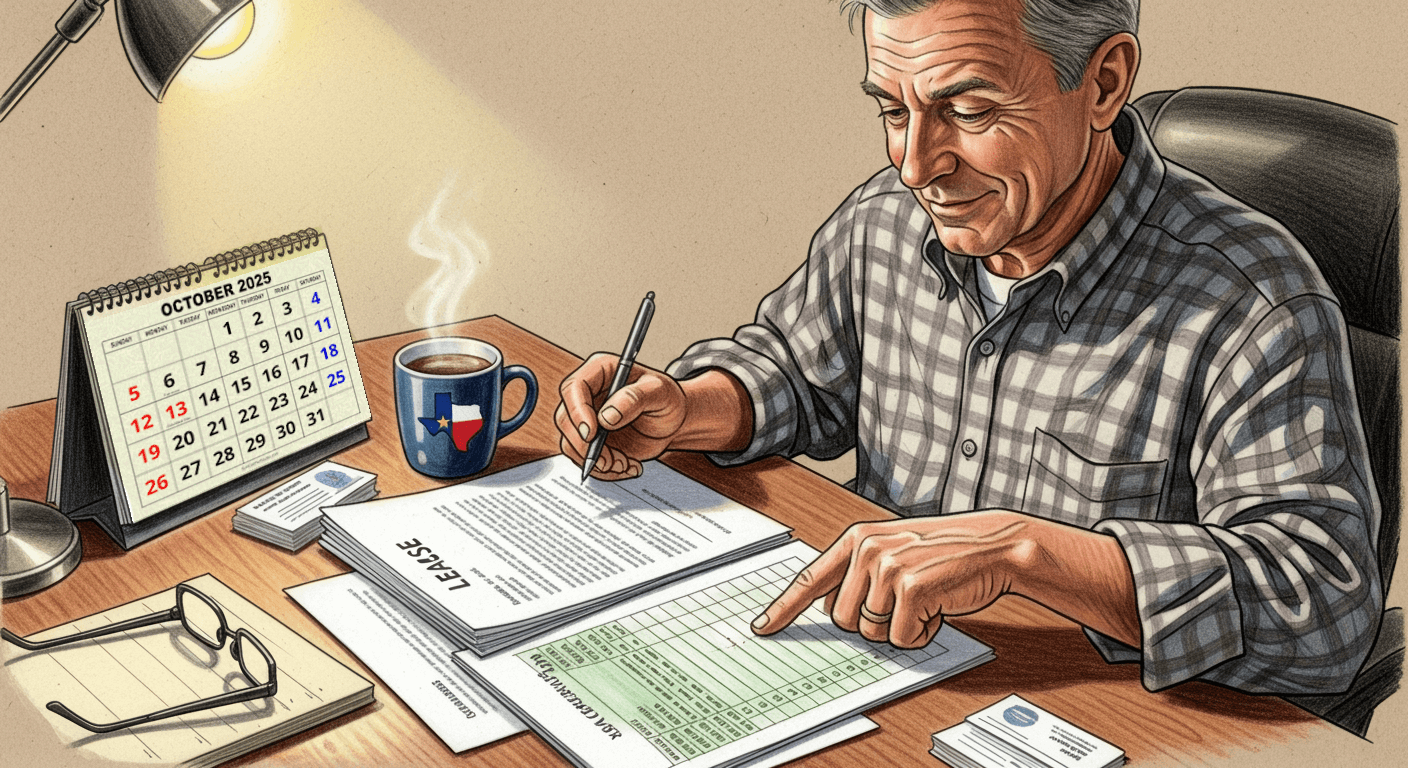Stop! Are Your Rental Late Fees Legal?

Late fees can help keep rent on time—but if you’re not following Texas law, that late fee could backfire. Whether you manage one unit or a hundred, understanding the limits and rules for charging late rent fees can save you from costly legal trouble.
When Can You Legally Charge a Late Fee?
Timing matters. You can't charge a late fee the day rent is due.
Under Texas Property Code §92.019, landlords must give a grace period. If rent is due on the 1st of the month, you cannot charge a late fee until the 4th. That means rent has to be unpaid for two full days before you can legally add any late charges.
This timing is already built into the standard Texas Apartment Association (TAA) Residential Lease,
which is a big reason to use it.
How Much Can You Charge? Texas "Safe Harbor" Explained
There’s no flat dollar cap in the law—but there is a “safe harbor” percentage that tells you what’s automatically considered reasonable.
| Property Size | Max Late Fee (Safe Harbor) |
|---|---|
| 1–4 units | Up to 12% of one month's rent |
| 5+ units | Up to 10% of one month's rent |
✅ Important: This total includes both the initial late fee and any daily fees that follow.
If your fees stay under these limits, courts will generally consider them reasonable—no extra explanation needed.
TAA Lease Compliance: What You Must Fill In
The TAA Lease makes it easy to stay compliant—but only if you complete it correctly.
-
Page 1, Box G: You must clearly state the amounts for the initial late fee and the daily late fee.
-
Start Date: Late fees should start on the 4th day after rent is due on the 1st.
-
Daily Charges: You can charge a small amount per day, but again, make sure the total for the month doesn't exceed the 10% or 12% cap.
If it’s not written into the lease, you can’t legally charge it—no matter your policy.
What Happens If You Charge Too Much?
You can technically charge more than the “safe harbor” limit—but that’s when things get tricky.
To go above 10% or 12%, you’ll need to prove in court that the higher amount is reasonable and based on actual damages. That might include administrative costs, time lost managing collections, or even lost income.
But be warned: Courts aren’t always sympathetic, especially if your fee seems arbitrary. If you're not sure, get legal advice before setting a higher fee.
Real Penalties for Breaking the Law
If a court finds your late fee policy illegal, the penalties aren’t just a slap on the wrist:
-
A $100 statutory penalty
-
3× the amount of the illegal late fee
-
The tenant’s attorney’s fees
Even a $50 overcharge could spiral into a $300+ fine—plus legal bills. That’s why compliance isn’t optional.
Local Insight for Lubbock Landlords
Lubbock owners face the same Texas rules—but many still use outdated or DIY lease forms.
If you’re managing units off-campus near Texas Tech, or operating mid-size communities, the 10% rule is especially important. Multiple units = lower safe harbor, and higher risk if your math is off.
LAA members automatically have access to the full TAA Lease Program, including legally updated lease language and addenda built for Texas law. It’s one of the most valuable (and underrated) perks of membership.
Final Word: Stay Legal, Stay Protected
Late fees aren’t just about policy—they’re a legal line. Using the TAA Lease helps keep you on the right side of that line.
-
Set the right start date (4th of the month)
-
Keep fees under 10% or 12%
-
Put it all in writing (Box G)
-
Don’t guess—ask for help if you’re unsure
If you’re unsure whether your lease is compliant or want help updating your forms, give us a call. LAA staff can walk you through it or connect you with a trusted legal partner.
Q: Can I charge a late fee on the 2nd if rent is due on the 1st?
A: No. You must wait until the 4th day after rent is due.
Q: Do I have to use the TAA Lease to follow the law?
A: No, but the TAA Lease is pre-vetted and easier to keep compliant. It updates automatically with state law changes.
Q: What happens if I accidentally charge too much?
A: If the tenant takes it to court, you could owe up to 3× the fee, plus penalties and legal costs.
